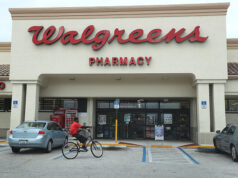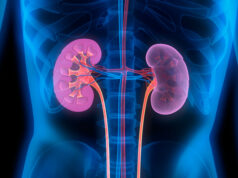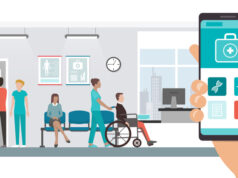Almost overnight, the Covid-19 pandemic threw health systems worldwide into crisis mode, leading to the mass postponement and deferral of care for anything other than the virus. As global health expert Devi Sridhar has noted from her research on responses to Ebola and other outbreaks, pandemics are like “black holes,” consuming all of our attention, expertise and resources — inevitably slowing or reversing progress on other critical public health concerns and agendas. We are, as a result, just beginning to take stock of the devastating impact of this pandemic on the trajectory of other life-threatening diseases, especially cancer.
With most hospitals and providers overwhelmed by direct virus response and fear of exposure leading people to postpone care, the pandemic has led to a precipitous drop in cancer screenings and delayed and deferred treatment. One recent study documented a 46% drop in the mean weekly number of new diagnoses for six common cancers. Another study recorded an 89% decline in breast cancer screenings and 85% drop in colorectal cancer screenings in the first four months of 2020 as compared to the prior year.
The reverberations of this brief, but damaging lapse will be felt for years to come. The National Cancer Institute projects an additional 10,000 excess deaths over the next decade just from breast and colon cancer. As the pandemic is in a “third wave” in the US, with comparable surges and lockdowns occurring across Europe, we need to urgently understand the trajectory of cancer care during this pandemic so we can contain further damage and improve our response to future public health emergencies.
A scenario with no playbook
Oncologists are no strangers to navigating uncertainty. And yet, the particulars of this novel virus presented a scenario few had contemplated or planned for. Early in the pandemic, data from China and elsewhere warned of a dangerously high risk of virus exposure for cancer patients, with one study of cancer patients in the UK with Covid-19 indicating a 33.6% mortality rate, far higher than for the general population.
Standard, time-tested protocols and pathways were immediately thrown into question, often replaced by the “do no harm” default of keeping patients at home until conditions were deemed safe. Without clear and consistent evidence to guide outpatient care of Covid-positive patients, cancer centers have adopted a wide array of protocols, from continuing therapy of asymptomatic patients to not allowing any Covid-positive patients to enter the center until they have received two consecutive negative test results. A survey conducted in June of European hospitals and cancer centers found pandemic-related changes to normal treatment pathways in 4 out of 10 patients (6 out of 10 in the UK and Belgium).
Now, eight months into the pandemic, we’re getting a clearer and more nuanced view of how cancer and Covid-19 interact and how cancer treatment can, and must, continue through the pandemic. Most of the early studies of mortality for cancer patients with the virus came from hospitalized patients, potentially skewing results by focusing only on patients with more severe conditions. A new study presented at the 2020 European Society of Medical Oncology (ESMO) Virtual Congress of more than a thousand cancer patients receiving treatment in German outpatient clinics found that the vast majority who tested positive were asymptomatic — and that these infections did not seem to impact the outcomes of treatments such as chemotherapy.
Using real-world evidence to establish a clear path forward
We can’t turn back the clocks or play Monday-morning quarterback on what’s transpired over the past months. The true impact of delayed and deferred cancer screening and treatment may not be fully known for another five to ten years. But we can fill the current data vacuum we find ourselves in with real-world evidence (RWE).
As it is impossible to design a clinical trial to evaluate the best care delivery method for cancer patients during this ever-evolving pandemic, RWE (the insight derived from the analysis of real-world data (RWD)), offers an opportunity for us to understand the impact on and outcome of cancer patients since the beginning of the pandemic. This understanding is critical for devising safe, evidence-based strategies for cancer care as we continue to wage what’s been aptly described as “a war on two fronts.” Only with RWD (data derived from electronic health records, claims and billing systems, disease registries, and other such sources) can we begin to parse the complex interplay of cancer and Covid-19 and weigh the true risks associated with continuing vs. delaying treatment for different types of patients under different types of conditions.
The reality is, we can’t afford to let up and lose momentum in our progress against cancer, a disease that before the pandemic set back progress was on course to kill 600,000 Americans this year alone. Covid-19 is, unfortunately, showing no signs of letting up with the US recording setting new records for recorded cases. Overwhelmed hospitals in some of the hardest-hit regions are pausing elective procedures. And some scientists have suggested that even with a vaccine this virus could become endemic and continue to circulate for years. With RWE helping to inform, guide, and refine ongoing protocols and pathways, we can battle Covid-19 and cancer together and be far better prepared in our response to the next pandemic.
Photo: mathisworks via Getty Images







